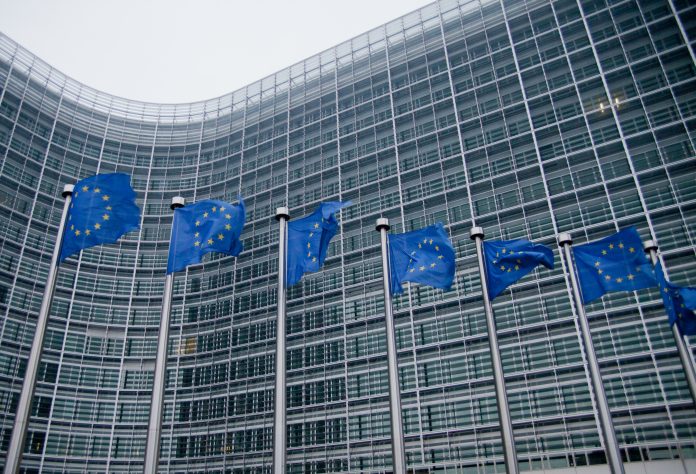Open Access Government discovers how Mariya Gabriel, Commissioner for Innovation, Research, Culture, Education and Youth, is prioritising the recovery of Europe’s cultural sectors as well as Research and Innovation
To continue achieving excellence in Research and Innovation, much recovery work needs to be done by the European Commission following the COVID-19 crisis. As we know, it has seriously affected R&I and the pace of Europe’s digital transition, however, the pandemic has also taken its toll on cultural sectors, and Europe must simultaneously support their recovery. Mariya Gabriel, Commissioner for Innovation, Research, Culture, Education and Youth, has brought this to light, focusing on the recovery of cultural sectors such as the creative, music, and sports industries, areas which have been exposed as not only leisure activities but instruments of physical and mental health prevention, being more important than ever.
At the end of 2020, Commissioner Gabriel participated in the fourth annual international forum “Creative Ukraine”, to address a key issue relevant not just in Ukraine but throughout Europe: the crisis in culture caused by the COVID-19 pandemic. “This crisis is affecting all our creators everywhere in the world. We, therefore, have to cooperate and share ideas to find solutions for our creators,” she stated in a speech at the forum, before highlighting the various actions being taken by the European Commission to support the creative sector. (1)
Financial support
The Next Generation EU recovery instrument was proposed and mobilised other programmes relevant for cultural and creative industries (such as Creative Europe, Erasmus, Horizon Europe, REACT-EU, and future cohesion policy, Invest-EU or Digital Europe.) Under Erasmus+, for the first time, the Commission launched an enormous €100 million call for ‘partnerships for creativity’ to connect education, training, youth and the cultural and creative sectors. In the same vein, Horizon Europe will for the first time have a dedicated cluster on culture, creativity, and inclusive society.
Tools for cooperation
The Commission also recently launched several online cooperation platforms such as:
- The Cultural Relations Platform.
- The Global Cultural Leadership Programme.
- The European Networks and Platforms collaboration project.
- The EU Cross Border Cooperation programmes (CBC).
- The new mobility scheme i-Portunus.
Supporting sport in Europe
There has been significant support led by Commissioner Gabriel for the sports sector. At the High-level conference “the recovery of the sport sector after the COVID-19 crisis: the way ahead,” she stated, “I fully measure the terrible impact that COVID-19 has on our sector. At the same time, today I heard how much solidarity, energy and creativity there is in sport.”(2) The sports sector has suffered major lost revenue and cash flow difficulties, leading consequences on jobs, with employees, athletes, coaches, and other workers risk being laid-off, with subsequent loss of skills. To try and combat this, funding and initiatives have been set up, such as the EU Work Plan for Sport 2021-2024.
Commissioner Gabriel has also stressed the impact of COVID-19 on museums sector and the music industry, asking, “why do we need to rebuild the music ecosystem in Europe?”, and stating that through these unprecedented difficulties, “museums need and deserve our support.” (3,4) The many industries affected by the pandemic are all in the recovery process, and it is clear to see that they are not getting left behind. That being said, while there is indeed a focus on culture, digital recovery is not slowing down either.
A green and digital Europe
The Commission adopted two major initiatives at the end of 2020 with the aim to strengthen the contribution of education and training to the EU’s recovery, and help build a green and digital Europe into 2021 and beyond. The two initiatives are highlighted below and place importance on the role of Europe’s youth as indispensable to R&I:
- The European Education Area to be achieved by 2025, in which the Commission proposes new initiatives, more investment and stronger cooperation of Member States to help all Europeans benefit from the EU’s rich education and training. (5)
- A new Digital Education Action Plan (2021-2027) reflecting lessons learned from the COVID-19 crisis, and devising a plan for a high-performing digital education ecosystem with enhanced digital competences for the digital transformation. (6)
Commissioner Mariya Gabriel stated that these two initiatives “are both essential for European recovery and future growth. They set out a common vision of the future of education linked to our commitments towards the digital and green transitions. We now need to focus on implementation and on creating synergies between them.” (7)
On top of this, the EU also launched a €1 billion call for R&I projects that respond to the climate crisis and help protect Europe’s unique ecosystems and biodiversity. Commissioner Gabriel said: “The €1 billion European Green Deal call is the last and biggest call under Horizon 2020. With innovation at its heart, this investment will accelerate a just and sustainable transition to a climate-neutral Europe by 2050.
References
- https://ec.europa.eu/commission/commissioners/2019-2024/gabriel/announcements/speech-commissioner-mariya-gabriel-fourth-international-forum-creative-ukraine_en
- https://ec.europa.eu/commission/commissioners/2019-2024/gabriel/announcements/closing-speech-commissioner-mariya-gabriel-high-level-conference-recovery-sport-sector-after-covid_en
- https://ec.europa.eu/commission/commissioners/2019-2024/gabriel/announcements/speech-commissioner-mariya-gabriel-liveurope-festival-what-do-we-need-rebuild-music-ecosystem-europe_en
- https://ec.europa.eu/commission/commissioners/2019-2024/gabriel/announcements/speech-commissioner-mariya-gabriel-network-european-museum-organisations-nemo-conference_en
- https://ec.europa.eu/education/education-in-the-eu/european-education-area_en
- https://ec.europa.eu/education/education-in-the-eu/digital-education-action-plan_en
- https://ec.europa.eu/commission/presscorner/detail/en/IP_20_1743
Open Access Government











